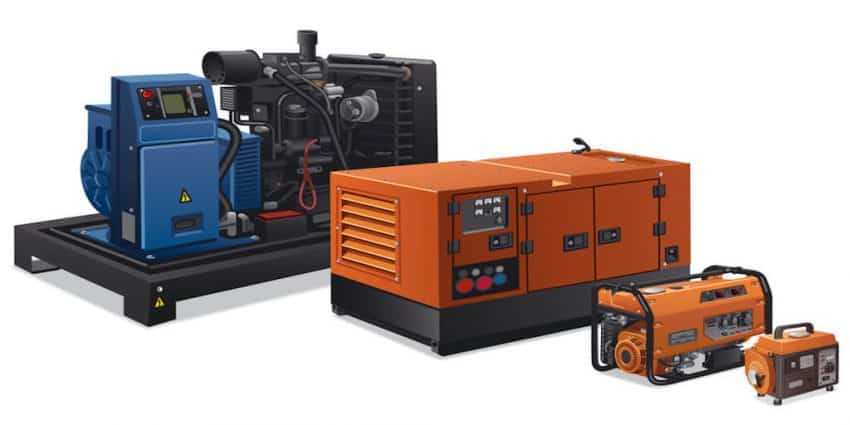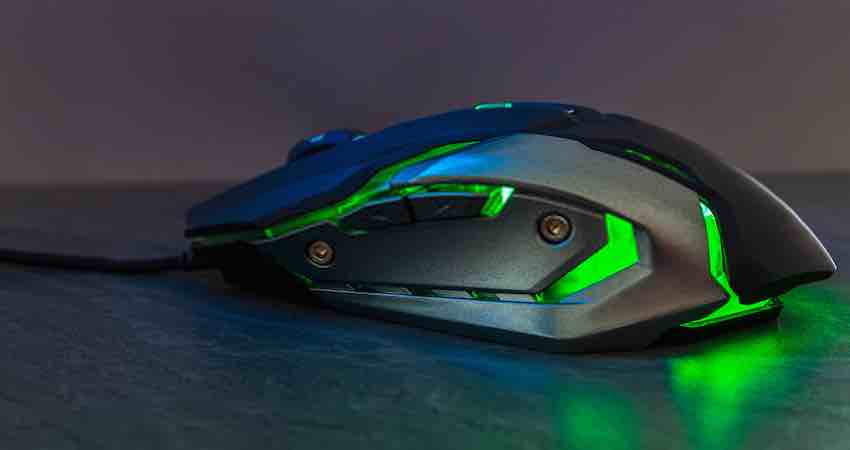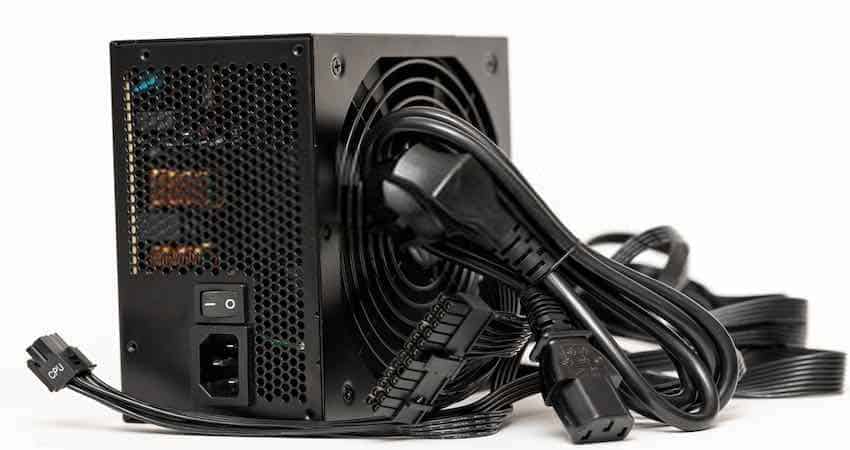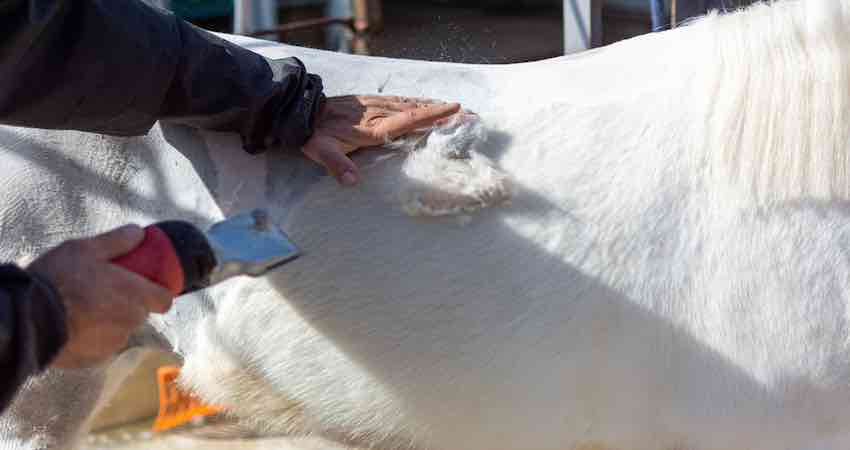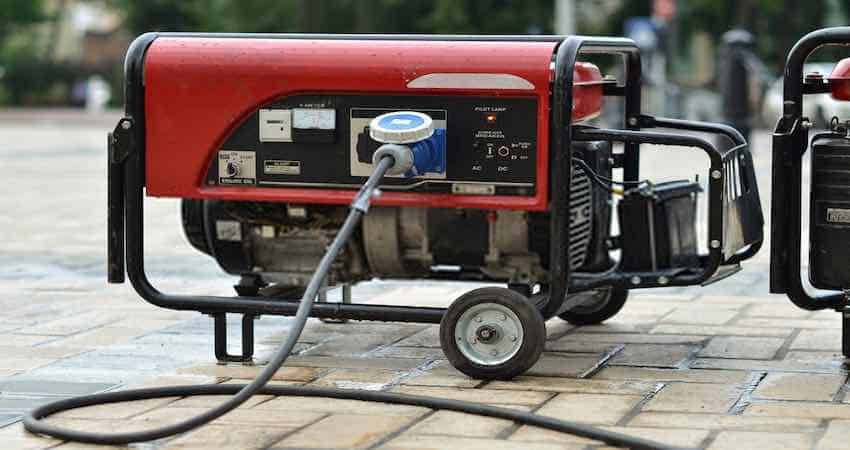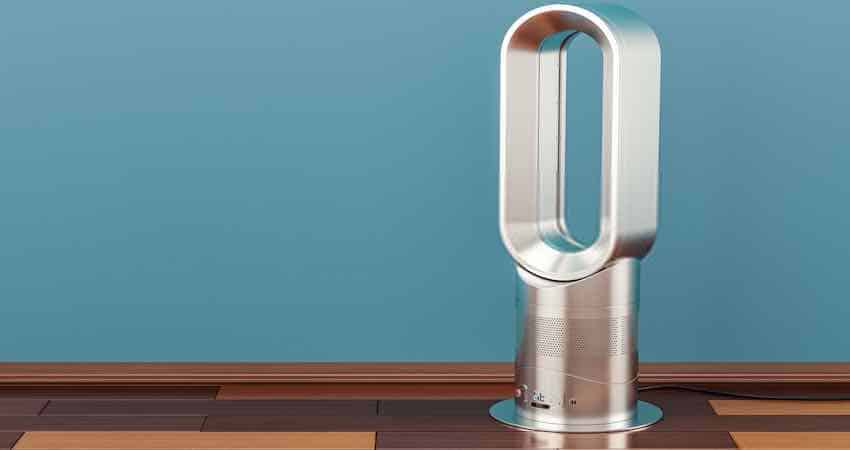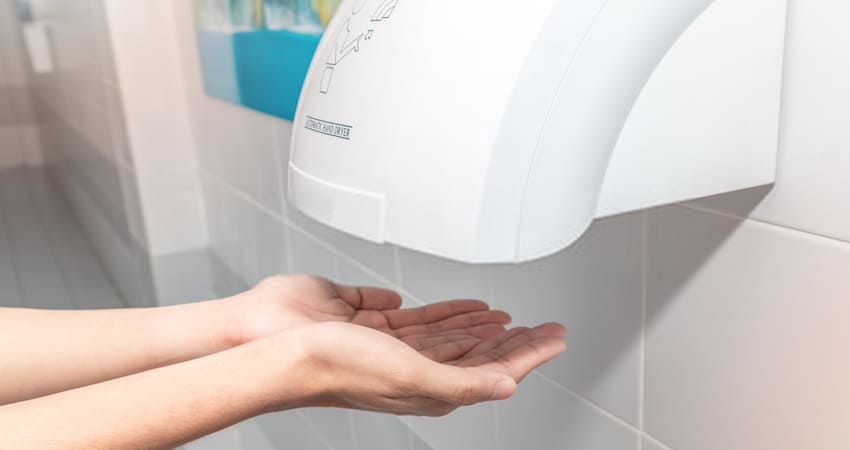As an Amazon Associate, we earn from qualifying purchases at no extra cost to you.
Today, you can’t imagine living for even a single minute without power. Your television, radio, appliances, and everything around you run on electricity. This is why generators are a necessity for our lives. At home, you should have a standby generator.
Without generators, camping wouldn’t be fun today. Thanks to the portability. You can travel with it everywhere you want to go.
Despite these benefits brought by the generator, they can be a nuisance. They make a loud noise. But that shouldn’t stop you from using them. What you need to do is to reduce the noise.
In this article, we will discuss techniques to reduce generator noises from camping sites and homes. Let’s dive deeper and learn.
Things to Factor When Using Generator for Camping and Home
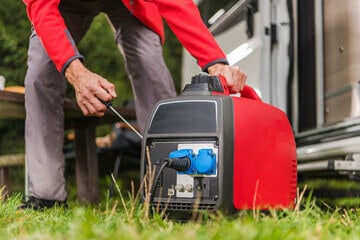
If you have been keen, you will agree with me that generators produce different types of sounds. Various factors will determine the kind of sounds produced by your noise. These factors determine the noise level.
Therefore, factor the following things when using generators in your camping site or home.
- Generator Location
Generators cannot be placed anywhere. Where you put your generator will determine the level of noise you will experience.
If you place the generator next to your tent, then you can imagine the level of noise. In homes, you cannot also put the generator next to a living room. Expect uncontrollable noise if you do that.
Therefore ensure you are keen on where you place your generator. Consider the following tips both in your camping site and home.
- Place the generator far away from the tend or living area.
- Place the generator on firm platforms. Shaky platforms increase the level of noise.
- At home, have a special generator room that is outside the main house.
- Place the Generator on sound deadening materials.
- Generator Strength
The generator’s energy level determines its power output. Generators with higher energy levels produce loud sound than lower energy level. That aside. Generators with for example 4000- watt will produce more noise than 1000-watt generators.
However, this cannot be entirely true. We will discuss that in the next point. A generator with a higher power level can be more silent than their counterparts. Technology is the reason for the difference.
- Generator Technology
Technology plays an important role. Generators with inverter technology produce less noise as compared to conventional generators.
Inverter generators produce approximately 300 dine waves on every engine rotation. This is less as compared to the conventional generators. If that sounds Greek to you, don’t worry. You don’t need to know the technical details. All you need to know is whether your generator has converter technology or not.
Inverter generator technologies have smaller engines. As a result, they feature a compact design, which is quieter.
Buying a Quieter Generator
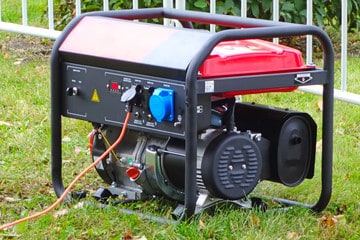
Buy a quieter generator if noise is a problem. You won’t have to worry about soundproofing. The good news is that these generators are readily available on Amazon.
Quiet generators technology reduces all engine sounds. You can get a portable or huge generator in this category. For camping, we recommend you to buy portable generators.
The only difference between the normal generators is the cost. Quiet generators will require a higher budget. However, the cost is worth the service. I am sure you don’t want to camp with a loud generator behind your tend.
Factor to Consider When Buying a Quiet Generator
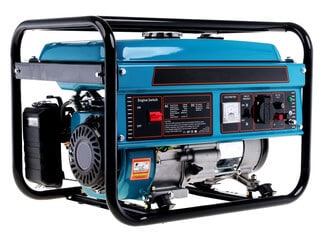
You need to make wise decisions. Generators are costly. Avoid all mistakes if you can. Buy a generator that precisely suits your needs. Therefore, consider the following factors when buying a generator.
Purpose: This is the prime factor. Why do you need the generator? Consider purpose factors like portability, standby, or prime power needs.
Capacity: Buy a generator that can produce enough power to sustain your needs. In your home, if the generator serves as a backup, ensure it can support all power needs in your home. Don’t buy a generator that has a lower power capacity than your needs. Also, don’t waste money buying a huge generator that is far above your needs.
Fuel Type: Do you want a diesel, natural gas, gasoline, or LP generator? Every fuel type has its advantages and disadvantages. Most important buy a generator whose fuel type is readily available.
Spare parts availability: At some point, you will need to service or repair your generator. Can you get the spare parts quickly? If your answer is ‘NO’, don’t buy it.
Budget: Buy a generator that is within your means. Consider spare parts and maintenance cost in your budget.
Check the Following Generators on Amazon
Ryobi Bluetooth (Check on Amazon)
- 2,300-Watt
- Super Quiet
- Gasoline Powered
- Digital Inverter
- Super Quiet
- 2000-Watt
- Portable
- Inverter Generator
- 3400-Watt
- Dual Fuel
- RV Ready
- Portable
- Inverter Generator
For more recommendations, check Ryan’s suggestions on the best quiet generators.
8 Best Ways to Quiet a Generator
Buying a quiet generator is the first option. But if you already have a noisy generator, you can reduce the noise it produces. Apply the following techniques.
1. Fit Generator Silencers
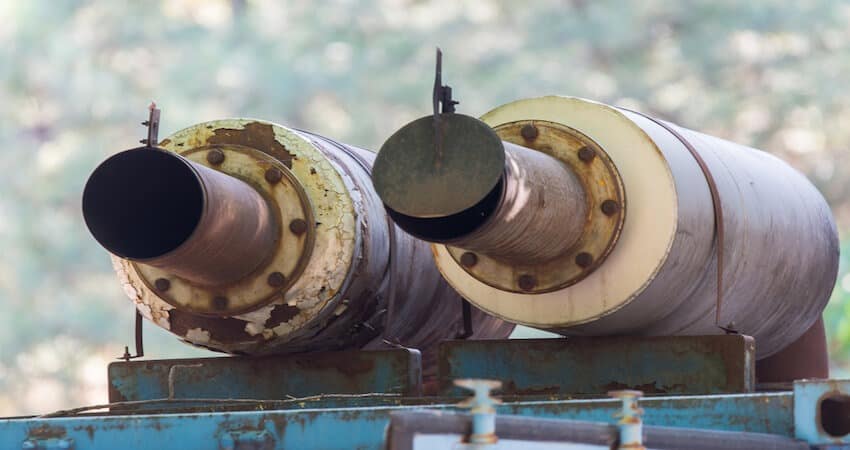
Generator silencers work the same with combustion engine mufflers in automotive engines. The silencers reduce the noise produced during combustion.
Generator silencers are mainly into three categories. Every category determines the level of noise reduction applied to your generator.
Reactive silencers: They should be connected by a tube to the engine exhaust. The muffler has three internal chambers. Exhaust noise bounces between the chambers and reduces the noise produced by the generator. Reactive silencer should be used to reduce low to mid-level noise.
Absorptive Silencer: This is a silencer with E glass or fiberglass insulation in its internal construction. When connected to the generator exhaust, it dampens the vibration and sound produced by the engine. Absorptive silencers are perfect for reducing the high frequency noise level generators.
Combination silencer: As the name suggests, it combines the technology of absorptive and reactive silencers. It’s fixed like all the other silencers. Combination silencer reduces all levels of sound frequency from the generator.
Before, fixing any silencer on your generator, consult your technician. A professional will help you choosing and fixing the best silencer on your generator.
Check the following silencers on Amazon.
- 18 Inches long
- Extension
- Coupler for Gen-Turi Generator Exhaust System
- Aluminized steel construction for corrosion resistance and durability
- Tube-and-partition style interior design
- Spot welded bushings provide stability and system support
- Provides installers
- Universal mufflers
2. Construct A shelter Box for Your Generator
The simplest way to reduce generator noise is by enclosing it. You can buy a quiet generator box. They are specifically designed to block all noise from the generator.
The shelter boxes come in different designs and size. Choose a box that can fit your generator. If you are crafty enough, you can construct your box. Ensure you install soundproofing and dampening materials on the box.
Construct or buy a generator shelter box that fits your generator.
3. Use the Water Bucket Trick
It seems strange, but it works perfectly. Connect a hosepipe from the exhaust. Dip the other end into a bucket with shallow water. This trick will dampen all the sound produced by the exhaust pipe. Consequently, the noise from the generator will be reduced.
4. Change the Exhaust Pipe Position
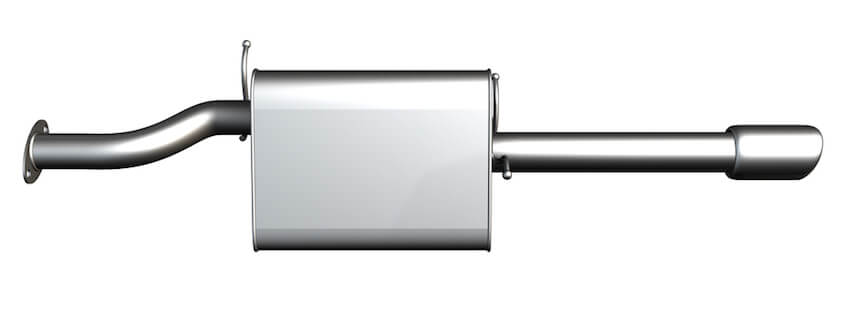
Most generators by default, have exhaust pipes in the outward position. Changing this position will cause a huge difference in your generator. An outward position produces more noise as compared to an upward position.
Therefore, alter the position of exhaust pipes. Let them face upward. This will allow sound waves to be directed upward rather than outward.
5. Keep Generator Further from the Tent or House
When you go camping place your generator far away from the tent. Keep it in approximately 20 feet (7 meters) away. The further, the better. It’s also important to ensure the exhaust pipe is facing away from the tent.
At home, keep the generator out of the house. Preferably, have a soundproofed cage for the generator. When choosing the location for your generator, ensure it’s not directly to the living rooms or bedrooms. Keep it at a place where the noise cannot be heard from the house.
6. Install Rubber Feet on the Generator
Generators produce sound vibrations. If the vibration effect is reduced, the overall noise will reduce also. So, whether it’s at home or camping, don’t place the generator directly on wooden board or concrete. Avoid surfaces completely. They magnify vibration strength. Instead, place the generator on the ground. The earth will absorb vibration.
The best way is to put a rubber mat or anti-vibration pads under the generator. The anti-vibration pads used on washing machines work perfectly on generators. Generator feet are similar to washing machine stands.
The anti-vibration pads absorb all vibration wave from the generator. It reduces the structural noise from your homes and camping sites.
Check the following pads on Amazon.
Washer Dryer Shock Absorbing Pads
- Pack of 4 Universal Anti-Walk Pads
- Excellent Shock Absorber
- Non-Skid Design
- sturdy and durable
- Made of recycled tire rubber
- Effective Anti-Vibration platform
- A pack of four
- Perfect for generators
- Absorbs vibrations
7. Soundproof your home and Camping Tent
One of the most effective ways of reducing noise is putting a barrier between you and the noise source. This is simple. Thanks to a dozen soundproofing techniques.
Check our articles on home soundproofing
Also, soundproofing is easy. You don’t need a professional. With simple steps, you can soundproof your tents or home. Buy soundproofing materials on Amazon and prevent the noise from disturbing your quiet refuge.
Use the following materials to soundproof your camping tents & homes.
- Soundproofing Blankets
Moving blankets work well in soundproofing homes. They can also be used in camping tents too. The blankets are dense. They absorb all sound echoes. Also, the blankets do not allow air or sound to pass through them. Use blankets to soundproof the following areas in your camping tent and home.
- Place them on your floors.
- Pin them on the walls.
- Cover every air space.
- Hang them over the windows.
- Hang them over your doors.
- Pin them on the ceiling to prevent noise from generators above you.
Factors to Consider When Choosing the Best Soundproofing Blanket
Not every blanket will be useful in soundproofing your air vents, camping tents or home. The following are the top factors you should consider before buying any blanket.
- Thickness, Density, and Weight.
The thicker, denser, or weightier the blanket is, the better. Sound will have a hard time penetrating through the blanket.
For better results, use double or triple blanket layers in your soundproofing.
- Size
The size of the blanket/curtains should cover the space you need to soundproof. Don’t leave any space in between blankets.
Blankets come in different sizes. Buy a blanket that fits air vent space.
- Grommets
Grommets are hanging the blankets/curtains on a wall or a rod. Blankets/curtains made for soundproofing purposes, come with grommets.
Check the blankets below on Amazon
- Deluxe Pro
- Double-sided construction
- 80″ x 72″ (40 lb/dz Weight)
- Professional Quilted Shipping Furniture Pads Royal Blue
- Effective sound absorption.
- Measures 95″ x 54.
- Great for recording studios, drum rooms, rehearsal spaces, vocal booths, and more
- Installation hardware included
- Soundproofing Curtains
Soundproofing curtains are thick and heavy. Curtains and blankets work in the same way. The only difference is that curtains can only be used on the windows, vents, and doors. Blankets can be used to soundproof different areas in the house.
Therefore, use the curtain on your windows, doors, and space that can let in sound. For camping, soundproofing curtains are perfect. They are easy to move with. Also, they can easily be hanged on the tents.
We recommend the following curtains from Amazon.
- Noise Reducing Thermal Insulated Solid Ring
- Top Blackout Window Curtains/Drapes
- Two Panels,42 x 84 Inch.
- Thermal Insulated
- Noise Reducing
- Size: 52W x 54L Inch
8. Inspect the Generator’s Muffler
Exhaust pipes have rubber insulation around them. The insulation is specifically meant to reduce the noise produced by the generator. If your generator is producing loud, uncontrollable noises, inspect the muffler. If it’s destroyed, replace it.
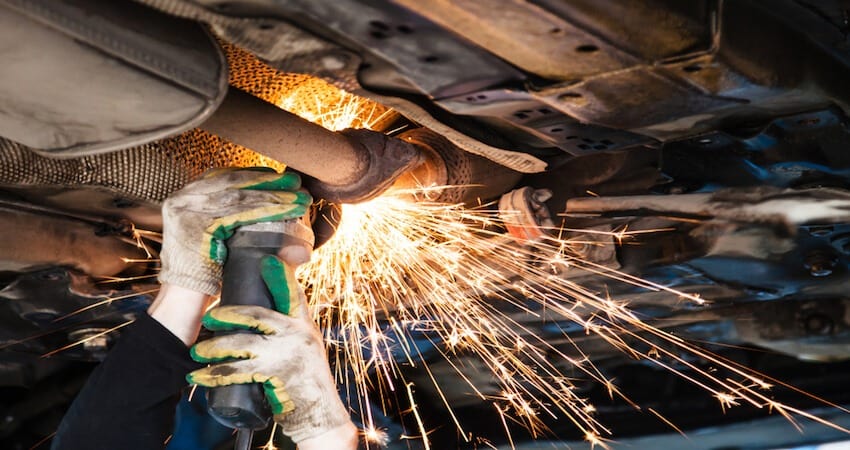
Caution Measures
Soundproofing and reducing generator noise is an excellent project. However, you need to be extra careful. Beware of the following caution measures. Stay safe when reducing generator noise.
- Don’t use flammable material to cover or dampen generator sound.
- Ensure there is enough air circulation to your generator.
- Don’t block your generator exhaust pipe completely.
Parting Shot
Now enjoy the comfort of your home without worrying about the noisy generator. Soundproof your homes. Buy quiet generators and silence the noisy ones. Enjoy undisrupted time with your family at home and during your camping.

